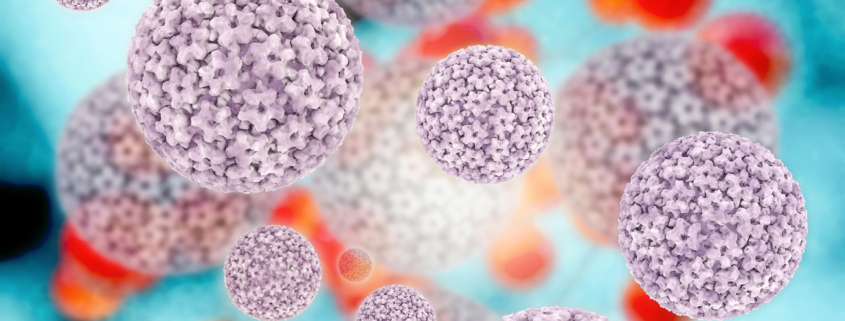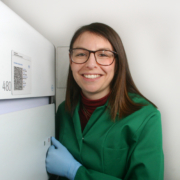Human papillomaviruses (HPV) – What is it?
Human papillomaviruses are a group of widespread viruses. In most cases, people affected by the virus are unaware of the infection. However, certain types of HPV are responsible for the development of tumours, such as cervical cancer.
Almost everyone gets infected with HPV at some point in their lives. HP viruses are mainly transmitted by skin-to-skin contact, but also by sexual intercourse. The infection often remains undetected because no symptoms are noticed and the infection heals by itself. However, harmless or unpleasant warts, such as genital warts, can occur. In a few cases and with certain types of HPV, chronic HPV infection occurs, which can last for several years. This can lead to malignant cell changes. The consequence may be precancerous lesions or cancer. In particular, HP viruses are responsible for the development of cervical cancer. However, tumours in the mouth, vagina, penis and anal area can also be caused by human papillomaviruses.
High-risk HPV types
Not all HP viruses are causing cancer. To date, more than 200 HPV types have been conclusively identified, according to the Robert Koch Institute. They can be classified into five different groups: Alpha, beta, gamma, mu and nu HPV. Only the alpha-HPV group can infect the skin and mucousal cells in humans.
In general, these types can be subdivided into high- and low-risk types. The low-risk types (“low risk” viruses) can cause warts in the genital area. However, a life-threatening disease can be rarely feared when infected with low-risk HPV types. In contrast, high-risk types (high-risk viruses) can cause malignant cell changes, i.e. cancer.
Protection against HPV infection
Vaccination against HPV is the most effective protection against an HPV infection. Not even condoms provide sufficient protection during intercourse. Children aged nine and older can be vaccinated against certain high-risk HPV types. In general, vaccination should preferably be applied before the first sexual intercourse. This is true for both boys and girls alike, because vaccination not only protects against cervical cancer. There are also other types of cancer associated with HPV, as mentioned above. In addition to vaccination, women should visit their gynaecologist regularly for cancer screening.

 Shutterstock
Shutterstock oncgnostics GmbH
oncgnostics GmbH Shutterstock / Image Point Fr
Shutterstock / Image Point Fr